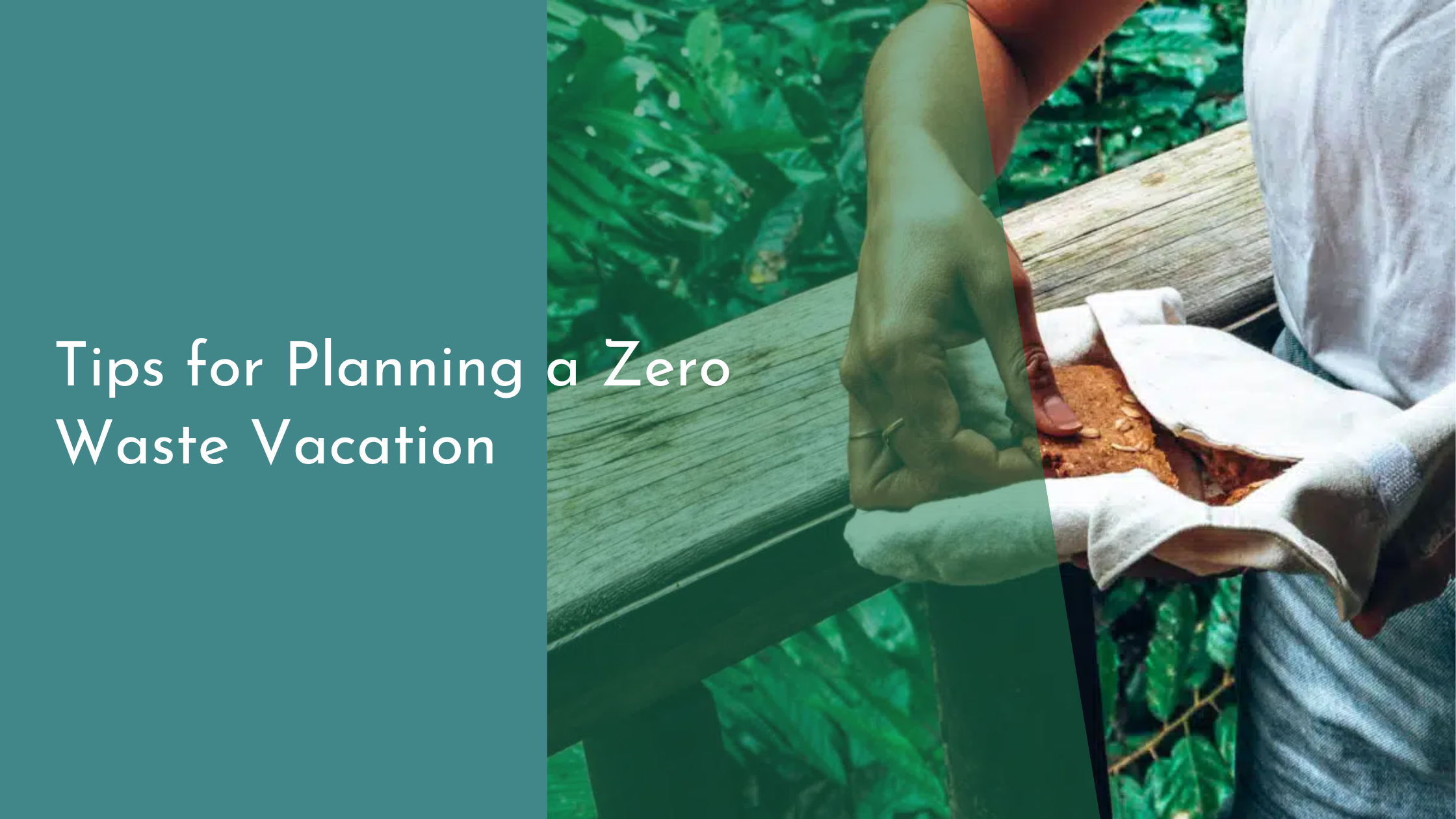Tips for Planning a Zero Waste Vacation
Traveling is a wonderful way to explore new cultures, landscapes, and cuisines. However, it can also significantly impact the environment if not done mindfully. Embracing a zero waste approach to vacation planning can help reduce your carbon footprint while still allowing you to enjoy all the pleasures of travel. Here are some practical tips to guide you in planning a zero waste vacation, ensuring that your adventures are as sustainable as they are memorable.
Research Eco-Friendly Destinations and Lodgings
When planning a zero waste vacation, the first step is to select a destination that prioritizes sustainability. Look for countries or cities known for their environmental commitment, such as those with efficient public transportation systems, strong waste management programs, and widespread use of renewable energy. Destinations that offer eco-friendly attractions or have a focus on conservation efforts can provide enriching experiences while minimizing ecological impact. Websites and travel guides dedicated to green travel can be useful resources for finding information on eco-conscious destinations.
Choosing the right accommodation is equally important. Many lodgings now focus on sustainable practices, from reducing energy consumption to implementing waste reduction initiatives. Seek out hotels, hostels, or vacation rentals that are certified by recognized green certification programs, which often assess criteria such as energy efficiency, water conservation, and waste management. Staying in eco-lodgings not only helps support the sustainable tourism industry but also often enriches your stay with unique experiences like farm-to-table dining or participation in local conservation efforts.
Pack Light and Choose Sustainable Travel Gear
Packing light is not only a way to save on baggage fees but also a key component of zero waste travel. By minimizing your luggage, you reduce the weight carried by planes, trains, or cars, which in turn reduces fuel consumption and emissions. Focus on packing versatile clothing that can be layered and mixed for different looks. Choose durable, high-quality pieces that can withstand the rigors of travel, reducing the need for replacements.
Investing in sustainable travel gear is another crucial step. Opt for products made from recycled or renewable materials, such as bamboo toothbrushes, reusable water bottles, and biodegradable toiletries. Consider purchasing solid toiletries like shampoo bars, which eliminate the need for plastic bottles. You might also want to bring along a set of reusable utensils and food containers, which can help avoid single-use plastics and are perfect for packing snacks or leftovers while on the road.
Plan Your Meals to Reduce Food Waste and Packaging
Food-related waste is one of the most significant challenges for travelers aiming to minimize their environmental impact. Planning your meals in advance can help you make more sustainable choices. Research local markets and eateries that emphasize locally-sourced, organic ingredients, and bring your own reusable shopping bags and containers for market visits. By supporting establishments that prioritize sustainability, you not only enjoy fresh, local cuisine but also contribute to reducing food miles and packaging waste.
When dining out, consider sharing dishes or ordering smaller portions to prevent food waste. For meals on the go, pack your own snacks in reusable containers, which can also be used to store restaurant leftovers. If you have access to a kitchen during your stay, cooking some of your meals can be both a fun and environmentally friendly option. It allows you to precisely control portion sizes and ingredient choices, thus minimizing waste.
Engage in Low-Impact Activities and Support Locals
Select activities that have a minimal impact on the environment and are aligned with the principles of sustainable tourism. Enjoy the natural beauty of your destination by hiking, biking, or snorkeling, rather than opting for activities that require significant energy consumption or disturb local ecosystems. Guided tours that focus on conservation education can provide insight into local environmental efforts and the importance of preserving natural habitats.
Supporting local businesses and artisans is another way to ensure your travels are more sustainable. Choose souvenirs from local craftspeople rather than mass-produced items, and dine at family-owned restaurants. This not only helps the local economy but often results in more authentic and rewarding experiences. Participating in community-based tourism initiatives or volunteering for local conservation projects can also provide a deeper connection with the area you are visiting, all while ensuring your impact is positive.
Planning a zero waste vacation involves thoughtful decision-making and a commitment to sustainable practices. By researching eco-friendly destinations, packing light, making smart meal choices, and engaging in low-impact activities, you can significantly reduce your environmental footprint. As travelers, we have the power to influence change by choosing options that respect and preserve our planet. Embrace these tips and enjoy an enriching, memorable vacation that leaves a lasting positive impression on the world.

